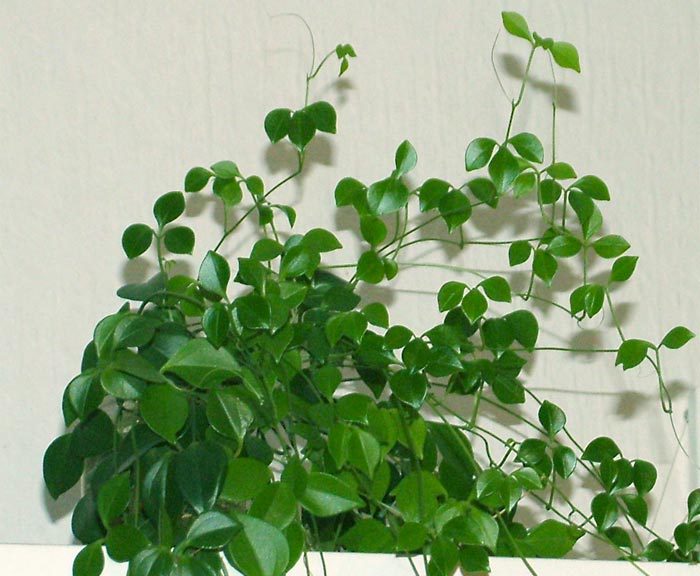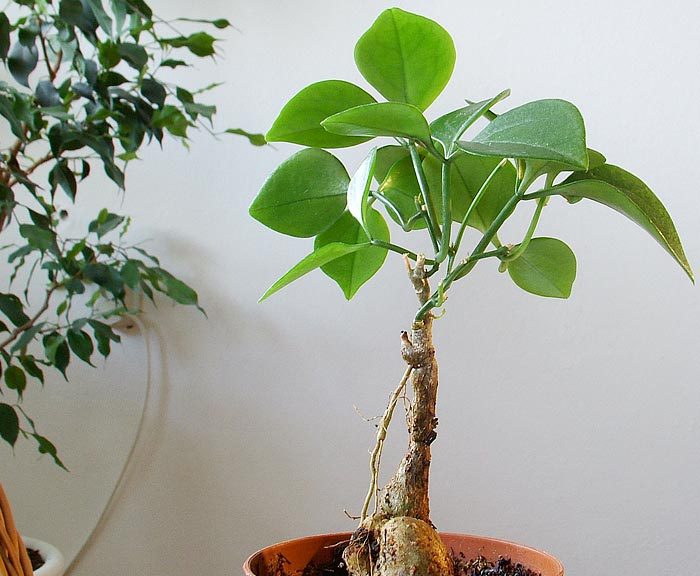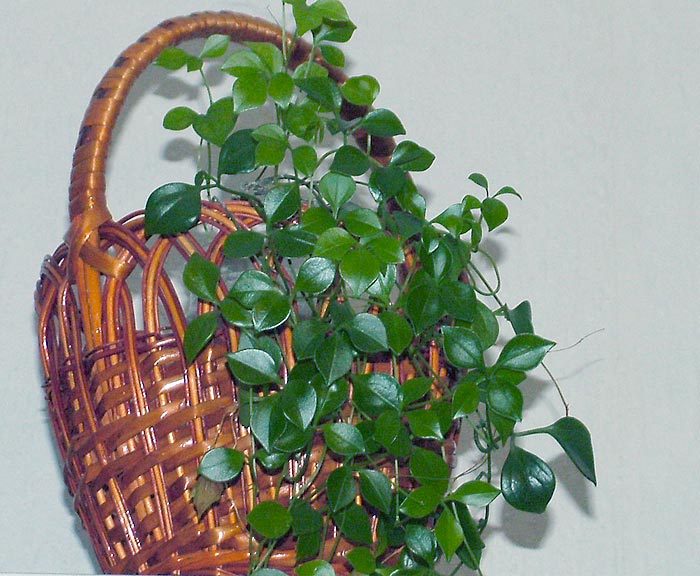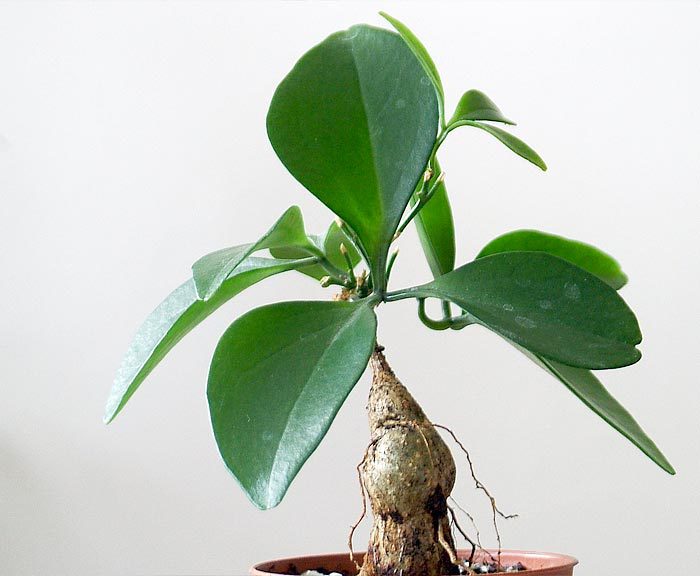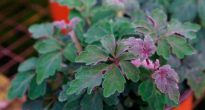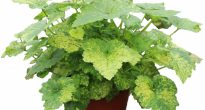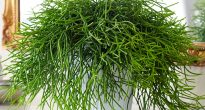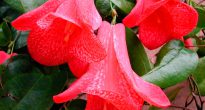A plant such as Neoalsomitra, which belongs to the Cucurbitaceae family, is caudex. In nature, it can be found in Malaysia, China and India.
Most of the species do not have a decorative appearance. In this regard, only 1 species is most popular with florists.
Neoalsomitra sarcophillus (Neoalsomitra sarcophylla) - This caudex evergreen is a perennial. The spherical caudex has a diameter of up to 15 centimeters. Shoots can be 3 to 4 meters long. The shoots have antennae, which are spirally twisted, while their tips bifurcate and have suckers that help the plant to cling to the support surface. Oval, smooth, alternate green leaves have split tips. They are also finger-dissected, trifoliate, and a central vein is clearly visible on their surface. Same-sex flowers can be creamy green or cream in color. Female flowers are single, and male flowers are part of small inflorescences.
Content
Caring for neoalsomitra at home
Illumination
The plant needs bright lighting, but it should be diffused. Morning and evening direct rays of the sun are not capable of harming such a plant. However, it must be well shaded from the scorching midday sun rays. For placement it is recommended to prefer western or eastern windows.
Temperature regime
In spring and summer, neoalsomitra grows normally and develops at ordinary room temperature. In winter, it needs coolness (about 15 degrees). In summer, if there is such an opportunity, the flower can be transferred to the street.
Humidity
Best of all, such a flower feels at a humidity of 60–80 percent. But at the same time, it quite quickly adapts to lower humidity, and at the same time it is not at all necessary to moisturize it often from a sprayer.
How to water
Water should be abundant in summer. So, watering should be done after the topsoil dries out. With the beginning of the autumn period, watering should be reduced, and in winter it should be moderate. Make sure that the earthy ball does not dry out completely, as this has an extremely negative effect on the condition of the plant.
Top dressing
Top dressing is carried out in spring and summer 1 time in 2 or 3 weeks. For this, fertilizer is used for cacti.
Transplant features
The transplant is carried out once a year in the spring.To prepare the soil mixture, you need to combine leaf and sod land, sand and peat, which should be taken in equal shares. Purchased soil designed for succulents and cacti is also suitable for planting. Do not forget to make a good drainage layer at the bottom of the container.
Reproduction methods
Can be propagated by seeds and apical cuttings.
The apical cutting is carried out in the spring. There should be 2 or 3 leaves on it, while the lowest one must be carefully torn off. Both soil and water are suitable for rooting. Rooting should take place in a few weeks.
Seeds are sown in March or April. For this, a substrate consisting of sand and leafy earth is suitable. For germination, the seeds should be transferred to a warm place and watered regularly. The container must be covered with a plastic bag or glass. Daily ventilation is required.
Pests and diseases
The plant can settle spider mite.
If the watering is too poor and the air is too dry, then the shoots of the neoalsomiter will begin to dry out, and the leaves will turn yellow and die off.

